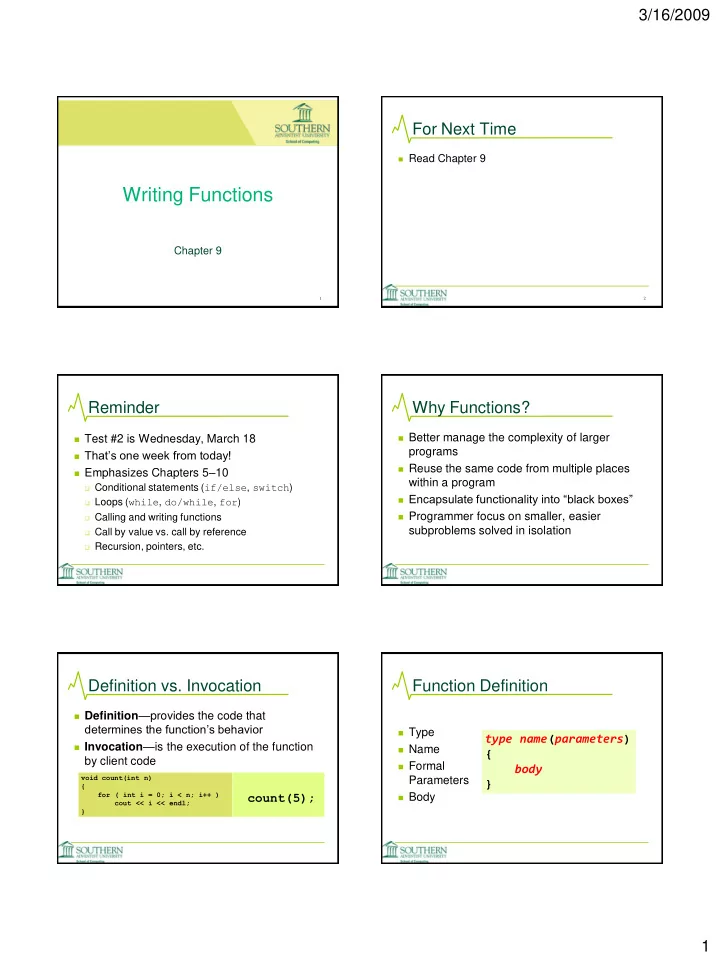

3/16/2009 For Next Time Read Chapter 9 Writing Functions Chapter 9 1 2 Reminder Why Functions? Better manage the complexity of larger Test #2 is Wednesday, March 18 programs That’s one week from today! Reuse the same code from multiple places Emphasizes Chapters 5 – 10 within a program Conditional statements ( if/else , switch ) Encapsulate functionality into ―black boxes‖ Loops ( while , do/while , for ) Programmer focus on smaller, easier Calling and writing functions subproblems solved in isolation Call by value vs. call by reference Recursion, pointers, etc. Definition vs. Invocation Function Definition Definition — provides the code that determines the function’s behavior Type type name ( parameters ) Invocation — is the execution of the function Name { by client code Formal body void count(int n) Parameters } { for ( int i = 0; i < n; i++ ) count(5); Body cout << i << endl; } 1
3/16/2009 Function Type Function Name Type can be any An identifier C++ type plus type name ( parameters ) type name ( parameters ) void Should accurately describe the purpose The void type { { of the function body means the body } function does not } return a value to the client Function Parameters Function Parameters Comma- List of statements type name ( parameters ) separated the function is to { type name ( parameters ) list of execute body parameter { May declare its own } body declarations local variables } May be empty Function Parameters Call by Value Actual parameters are assigned to the formal Formal parameters parameters when the client calls the function Parameters in the function definition This assignment is performed automatically and Actual parameters does not appear in your code Parameters (or arguments) provided by the Since the function works on copies of the client actual parameters, the function cannot May be variables, literal values, constants, directly affect the actual parameters and expressions A variable local to the client may be modified via the function’s return type 2
3/16/2009 Local Variables Function Documentation Variables declared within a function are local Essential information to that function Purpose Local variables are not visible to code outside Role of each parameter that function definition Nature of return value The name of a local variable can be the same Other helpful information as the name of a local variable in another Author function — they are different variables Date Formal parameters are local to function References definitions Next . . . More on functions 15 3
Recommend
More recommend